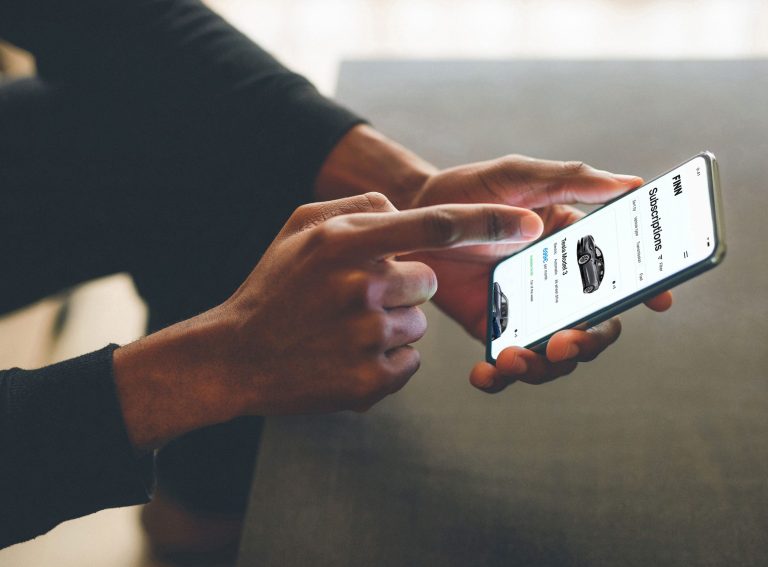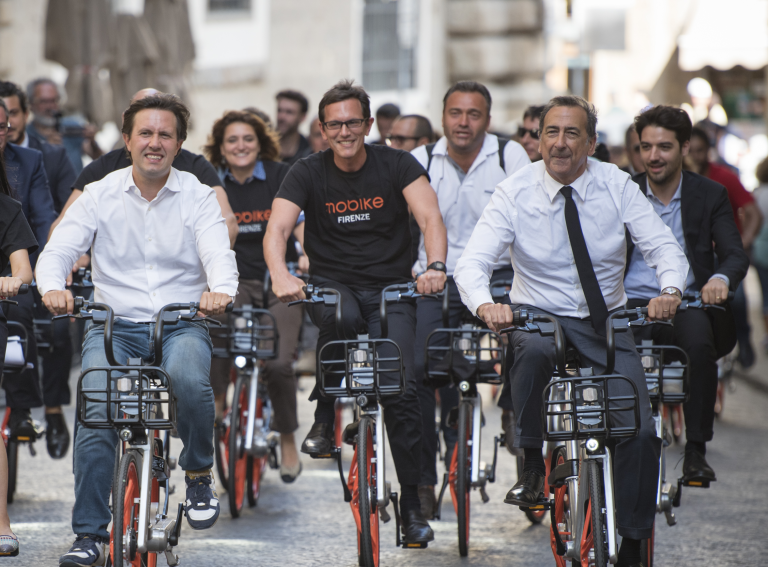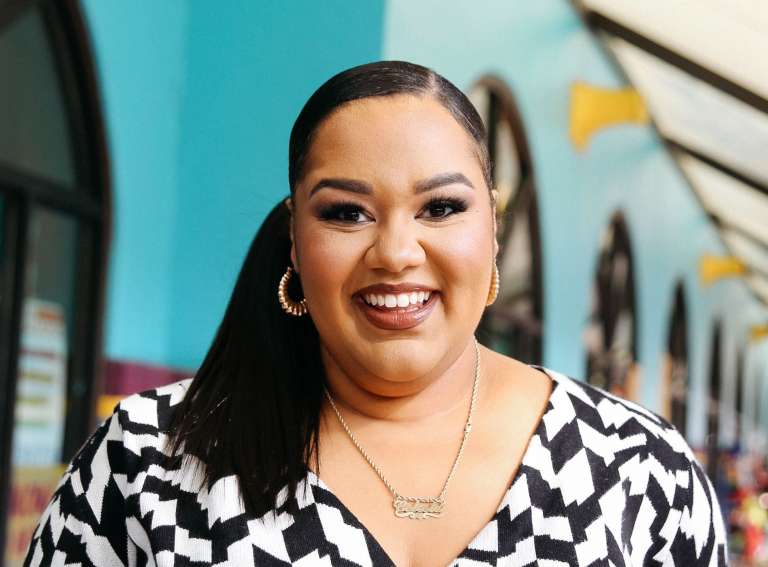Irene McAleese co-founded See.Sense after her husband Philip cycled home in Singapore one day to tell her he didn’t feel safe on the roads.
Leaving their corporate careers behind, the couple built a tech company that supplies products and granular data to fleet operators and cities globally to enhance safety, infrastructure and CO2 reporting.
When she isn’t informing policy making, Irene serves the industry in other ways and brought her expertise to Cycling Industries Europe as the only female on the board during her two-year tenure.
It’s no wonder she was spotlighted by Vianova’s Nikolina Kotur earlier this month. Zag thought it only right to follow up.
Zag: What kind of data is See.Sense collecting?
Irene: “We were originally using sensors to give situational awareness to a bike light which would flash brighter and faster at risky moments. Now we use the sensor data from that reaction to understand the risk profile and we aggregate the information from many rides to help cities make data-led decisions on infrastructure. We use edge processing and AI to process 800 readings per seconds to understand swerving and braking patterns, speed, dwell time, collisions and road conditions. Then you start to see emerging patterns such as hotspot areas where lots of swerving happens. We partner with cities to fill in the data gap and tackle their Vision Zero goals, and we can also work with fleet operators and local authorities to gather data and evaluate patterns on a larger scale.”
Zag: What is one prominent pattern you’ve found?
Irene: “We recently completed projects with Transport for London and the Royal Society for the Prevention of Accidents where we observed swerving and braking data. We found that where riders have braked suddenly in a jerk manoeuvre correlates with historical police reports into serious injury or deaths at the same scene. Our data is a warning indicator for cities, and it gives them the chance to intervene in the hazardous location. Cars can provide swerving and braking data, but this hasn’t been made available for micromobility before, so our data is about filling a gap and helping cities across the world meet their Vision Zero initiatives.”
Zag: You’ve lived in many areas of the world – the UK, Singapore, Australia. Any key observations on how cycling safety differs across these regions?
Irene: “When Philip and I lived in London there hadn’t been all the investment into cycling infrastructure and Boris bikes, so it’s been wonderful to see how cycling has grown in London. But even at that time there were still more cyclists on the road than what we saw in Singapore. That safety in numbers meant you felt more exposed in Singapore. There’s also this kiasu culture which is a ‘me first’ attitude so drivers really cut bikes off on the road.
“We’re in Australia now and here there’s less of a utility culture for cycling. Cycling is more for sports and leisure rather than for commuting to work and it’s marketed that way with lots of lycra. But I think it’s evolving and cities in Australia are rapidly trying to catch up post-Covid. They’re making investments in cycling infrastructure while active travel is a lot higher on the agenda than it used to be. That’s part of the reason we’re here now – we want to help cities leverage that and catch up with the world.”
Zag: What’s a personal challenge you’ve encountered as a female founder in the industry?
Irene: “The startup culture is very fast paced and I’m also a mother with two children. It can be quite demanding to run your own business. You don’t have holidays or sick days and you have to juggle lots of balls in the air. Sometimes, the balls eventually do drop.
“Another thing is the micromobility and cycling industry tends to be male dominated. While it doesn’t hold me back, I do miss some of the camaraderie that you would have with other women and I’d like to be able to learn, share and download experiences together.
“But I’ve learned to build up a good network around me. My husband and I run the business together, and we’ve built on each other’s strengths. We have great support from our family network who help with the children, especially when I’m travelling. I think it’s about building as many networks and as much support around you as possible, and also being confident that if you are passionate and knowledgeable about what you do and if you project that confidence then people tend to pick up on it. It’s not to say that there aren’t any unconscious biases out there, but I’m passionate enough about what I do to just push through.”
Zag: What do you think is a barrier for women overall in the industry?
Irene: “The challenge for women in the industry is that there are less of us. It’s a little lonely and I’d love to see more women coming in. What we see in our own data at See.Sense is that women have different preferences for cycling. They’ll choose different routes based on the safety, cycle infrastructure and quality of the roads. Having more women in the industry would help from a planning point of view to think deeply about some of these issues when doing the design. One of the largest growth areas for micromobility is reaching the female market. To do that, we need more people to help raise those issues and to come into the industry and look at them from a female perspective. We can then raise the profile of those needs and demand for more services in those areas.”
Zag: Why do you think more women aren’t coming into the industry?
Irene: “It’s a complex question. There are less women in science, technology, engineering and mathematics roles in general, and less women in founder roles. In terms of being a founder, I think we need more role models that other women can look up to and think ‘Oh, actually I can start my own business’. Maybe they haven’t grown up in a household where owning and running a business as a woman is considered a viable career path – I don’t think I did. But running a business does give you flexibility that you may not have in other careers, but women aren’t always aware of this possibility because they’ve had fewer role models.”
Zag: What practical measures do you want to see businesses taking?
Irene: “Businesses should design their recruitment in a way that’s welcoming for women. Employers need to value diversity and equality through their policies and planning in ways such as flexible working. Flexible working is critical for me. It means I can structure my day around the children, be there for them when they come home from school and make it to their special events. I’ve always tried to extend this to other women in the See.Sense team when they’ve needed this. Companies need to create the right culture which values everybody’s perspectives because it’s one thing to bring somebody into an organisation but it’s another to make sure you harness them and make them feel valued by policies that will support them.”
Zag: What’s the year ahead looking like for See.Sense?
Irene: “We’re opening a sales office down here in Australia to build on a successful project we’ve had working with Melbourne and Geelong with the Transport Accident Commission. We want to do more with this project where local authorities can use the See.Sense data for decision-making on a range of policies. We’re also continuing a large project in Essex, England which is scaling up to 2,000 bikes to collect data from using GPS and sensor trackers integrated into the bike. The bikes have been given to people living in deprived areas of Essex and they’re being used to understand behavioural change and how to support the infrastructure network where people are cycling.
“Lastly, we’re launching our first commuter platform and have started working with a large employer in the UK. They will be having their employees collect data using See.Sense devices and we will be sharing CO2 reporting with them to help meet their sustainability goals.”
Zag: Who is one woman you’d like to spotlight in the industry?
Irene: “Sally Middlemiss, a Board Advisor on Diversity to the UK Bicycle Association. She led a project on diversity in the cycling industry which developed a 10-step action plan to improve diversity, equality and inclusion in the workplace. I really admire Sally’s expertise in the cycling industry and her passion to bring about change.”





